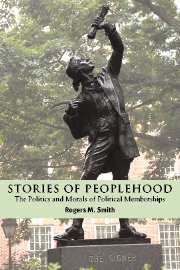Introduction: on studying stories of peoplehood
Published online by Cambridge University Press: 22 September 2009
Summary
Oh, oh, oh, the ancient fairy tale
It is high time to begin it.
The Fairy tale of the olden times
It is just time to remember it.
Opening lines of the Kyrgyz Manas EposManas and Moses
The Republic of Kyrgyzstan, also termed the Kyrgyz Republic, came into existence after a coup ended the former Soviet Republic of Kyrgyzstan on August 31, 1991. In the year 2002, the Republic maintained an official website linked to a 1992 Decree by Kyrgyz President Askar Akayev. He declared that 1995 would be “a year of national celebration of the millennium of the Kyrgyz heroic epos Manas.” Akayev also urged various governmental ministries to submit projects “on the revival of the age-old values and material and spiritual heritage of the Kyrgyz people connected with the epos Manas.” Those projects included organizing a single “scientific-propaganda coordinating center in the Republic in order to unite the means of mass media, science, culture and education for restoring the objective historical truth about the Kyrgyz and their historical memory.”
This website is revealing on several levels. From academic and cultural viewpoints, reviving and celebrating the epos Manas was a highly commendable act. Twenty times longer than the Iliad and Odyssey combined, the epos details the history of the Kyrgyz people from ancient times until the eighteenth century. Many regard it as an irreplaceable source of Kyrgyz history, philosophy, ethnography and spirituality.
- Type
- Chapter
- Information
- Stories of PeoplehoodThe Politics and Morals of Political Membership, pp. 1 - 16Publisher: Cambridge University PressPrint publication year: 2003



